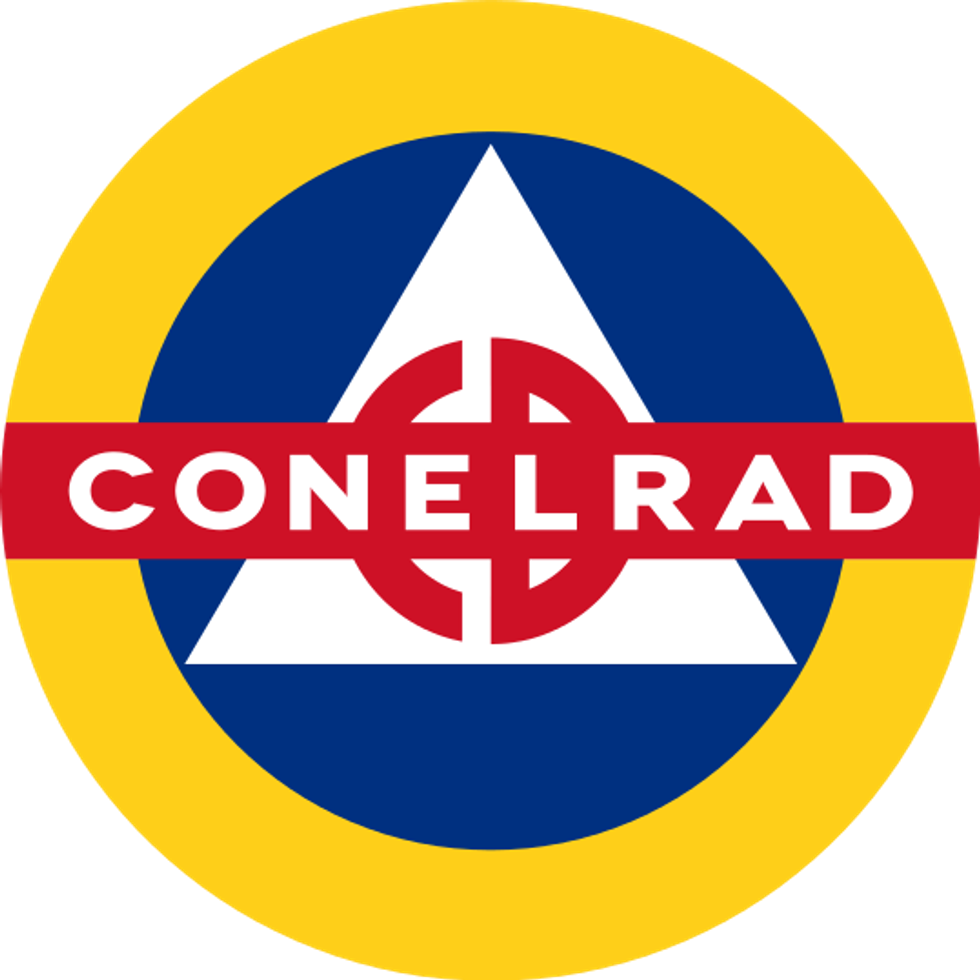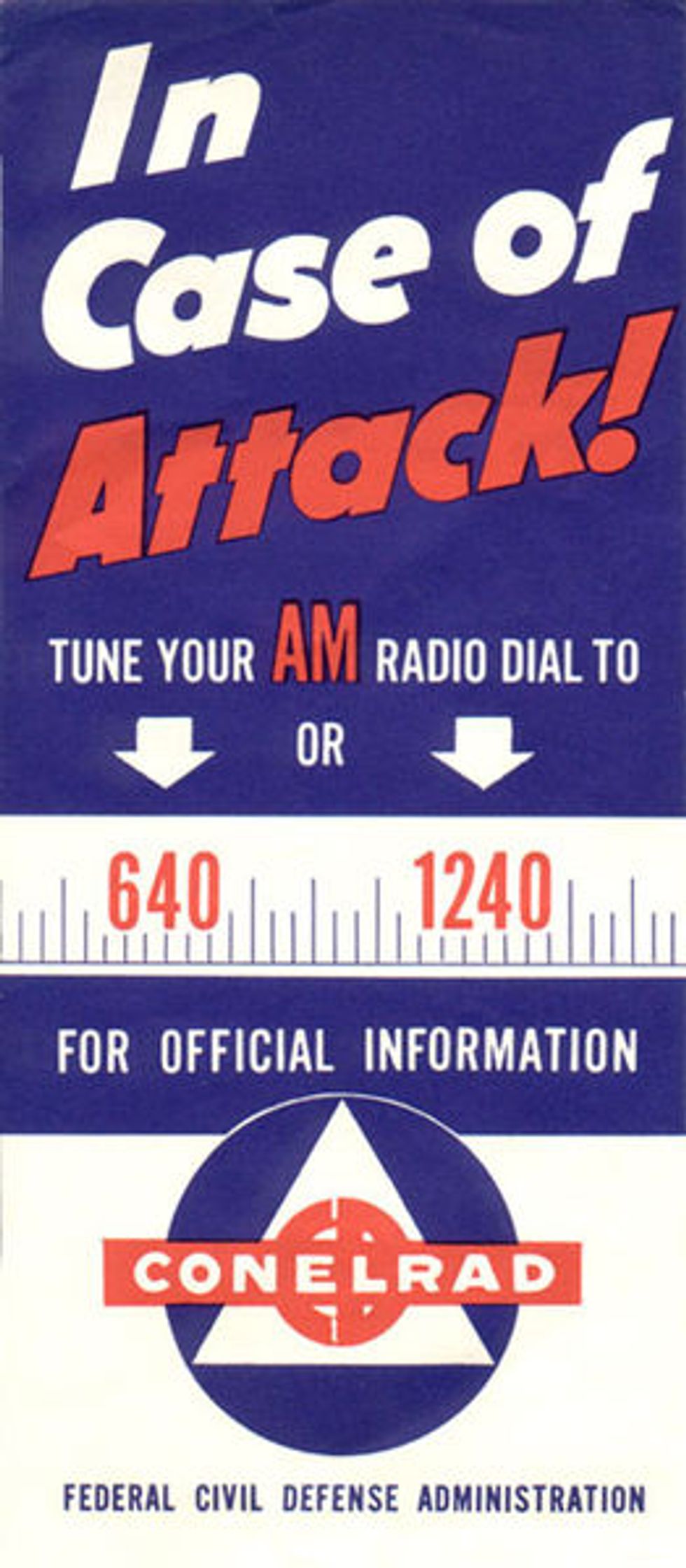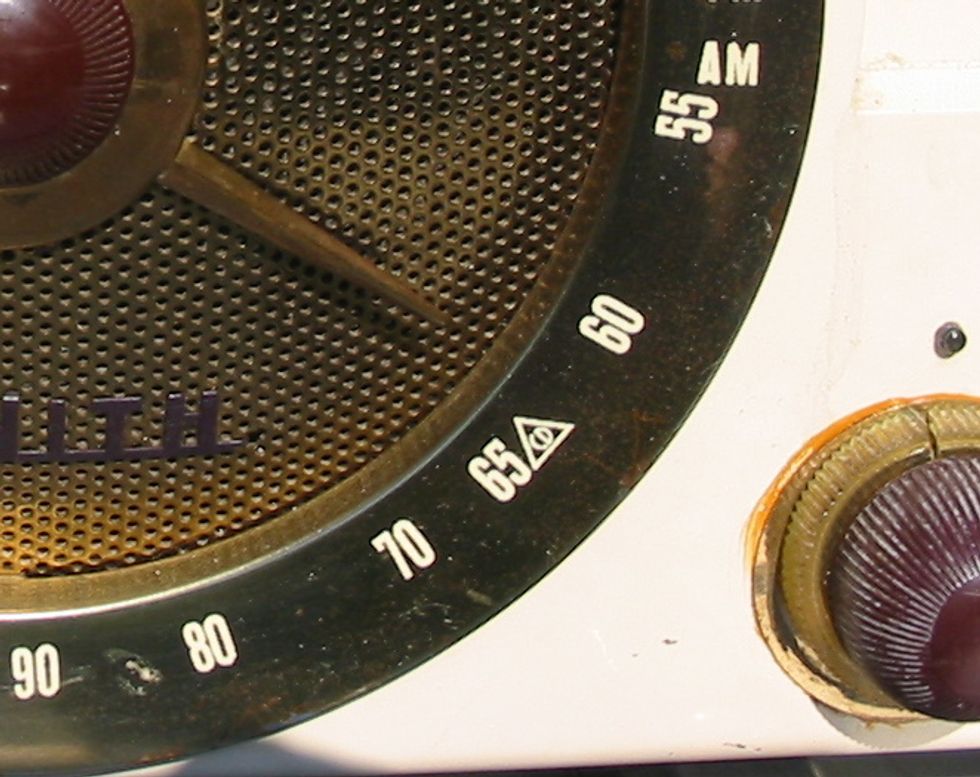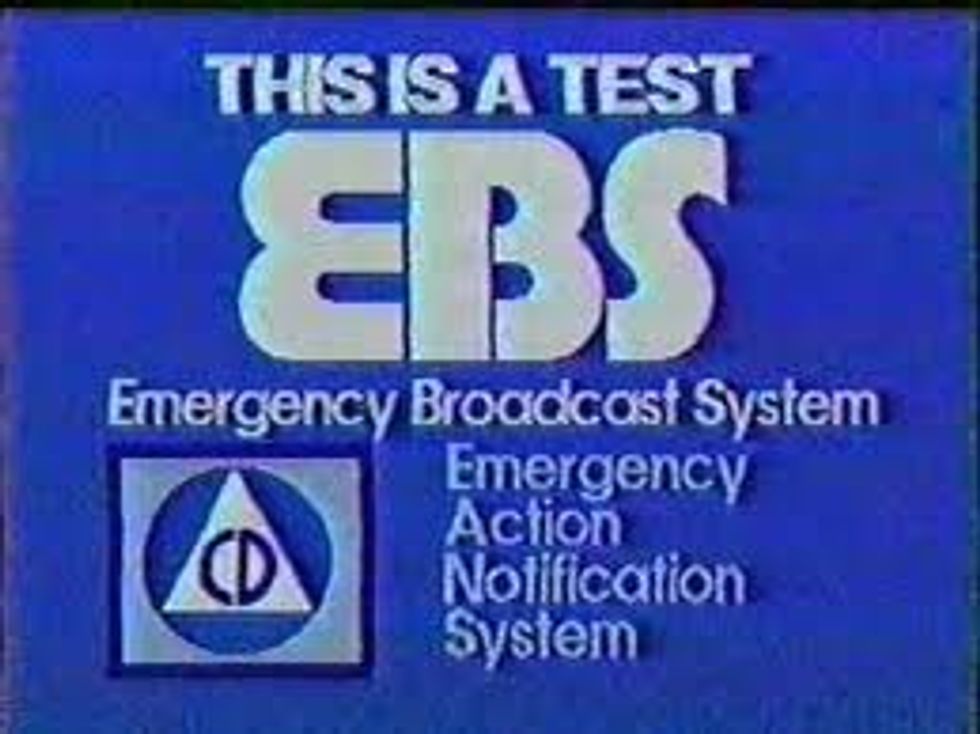MRRRRRP! MRRRRRP! MRRRRRRRRRRRRRP!
You awaken with a jolt, nearly falling out of bed. What could that horrifying noise be? A low-flying bomber jet? A swarm of angry bees? A top-50 dubstep hit?
As you turn towards your TV, you're met with this screen:
A bit cryptic, isn't it? The same system that alerts you of tornados, hurricanes, and AMBER Alerts also issues a terrifying reminder of why you should never sleep with the TV on.
Chances are, you don't pay these alerts much mind; after all, they play a small role in the grand scheme of television. However, the Emergency Alert System (abbreviated EAS) has a somewhat lengthy history involving (you guessed it!) the Cold War.
How could something so simple and infuriating play such a large role in what could have potentially been one of the most destructive wars in history? Well, it all goes back to what the Cold War was founded upon: the Nuclear Scare. The conflicts between the United States and the Soviet Union following World War II had resulted in the creation of atomic weapons that threatened the lives of not only soldiers, but of all citizens; The Cold War truly was a war in which all people played a factor.
Naturally, when all people are involved, all people need to be informed. This is where CONELRAD, the grandfather of the EAS, came into play.
CONELRAD, standing for Control of Electromagnetic Radiation, was created to inform Americans of potential nuclear threat by means of radio. Prior to its creation in 1951, there was no real way for the government to officially broadcast to everyone; radio stations would be interrupted for emergency broacasts (such as the Pearl Harbor attack).
Around the United States, the radio frequencies of 640 and 1240 kHz were dedicated to CONELRAD, and all Americans were instructed to tune into one of these stations in case of an emergency.
Along with this, all radios manufactured at this time were required to have CONELRAD frequencies labeled for easy identification:
While CONELRAD was heavily endorsed during this time, once the Cold War and the threat of nuclear attack had faded from the minds of most Americans, people began to realize that CONELRAD was outdated; what they needed was an all-purpose system for mass communication, rather than just one for attacks.
The Emergency Broadcast System (EBS), used from 1963-1997, was the solution.
Similarly to the EAS you may see on TV today, the EBS was used for general emergencies. However, there were some major flaws in the system; it was relatively easy for signals to be mistranslated by operators. In 1971, one TV station accidentaly broadcasted the actual emergency alert instead of the regularly scheduled test, luckily causing little panic due to the lack of details as to what the emergency could be.
Finally, in 1997 came the Emergency Alert System that we know today. While the system does have some flaws and has indeed had a few incidents during its lifespan, the system is fast and easily decoded by stations, allowing it to reach a majority of people by either TV or radio. Interestingly, the EAS was not activated for the 9/11 attacks, as it was believed that the immediate media coverage was sufficient:
"Some events really do serve as their own alerts and warnings. With the immediate live media coverage, the need for an EAS warning was lessened." -Richard Rudman, chairman of the EAS
Though the EAS is an all-purpose system, it has not been used for a legitimate national emergency. Rather, the EAS is typically used to warn us of potential weather events and, of course, serve as an unappreciated alarm clock at 3 AM. Speaking of which, why does the EAS have to sound so horrible? Instead of screeching, can't it play smooth jazz?
Do you remember how I mentioned that the EAS has to be decoded by stations? Those random screeches, in actuality, aren't so random; they're encoded with essential information that TV stations use to learn what the event is, where it is, how long it is, and who issued the alert to begin with. This is known as the SAME (Specific Area Message Encoding) header, and it's a quick (albiet startling) means of transmitting information the station needs in order to immediately transmit information to the public.
Though the EAS may be startling, and even a bit terrifying, it's important to remember that it saves countless lives every year, and is a perfected system that's predecessors date back to the beginnings of potential nuclear conflict. Though nuclear attack never did occur on American soil, if it had, CONELRAD could have potentially kept the public safe and informed.
The next time the EAS test wakes you up at some ungodly hour of the night, instead of cursing the system, remember its rich history and its essential means of keeping us on top of potential dangers both on a national and a local scale. Then turn off your TV and go back to sleep.
Sources:
"Emergency Alert System (EAS)." Federal Communications Commission. N.p., 06 Jan. 2016. Web. 23 Apr. 2017.
























